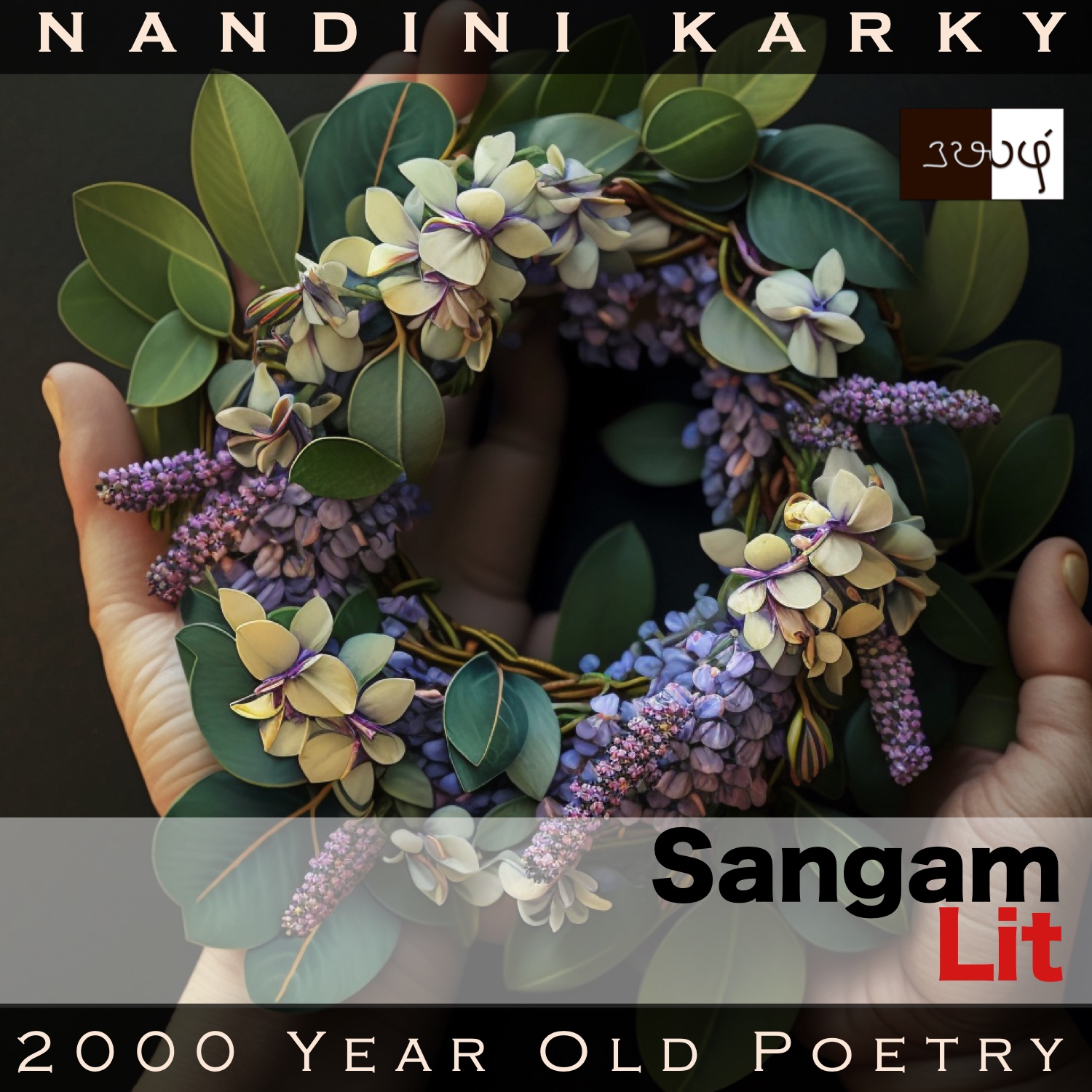Podcast: Play in new window | Download
Subscribe: Apple Podcasts | Spotify | Amazon Music | Android | iHeartRadio | TuneIn | RSS | More
In this episode, we learn of a king’s impartial generosity, as depicted in Sangam Literary work, Puranaanooru 106, penned about the Velir King Vel Paari by the poet Kabilar. The verse is situated in the category of ‘Paadaan Thinai’ or ‘King’s praise’ and places a virtue of the king in parallel to God.

நல்லவும் தீயவும் அல்ல குவி இணர்ப்
புல் இலை எருக்கம் ஆயினும், உடையவை
கடவுள் பேணேம் என்னா; ஆங்கு,
மடவர் மெல்லியர் செல்லினும்,
கடவன், பாரி கை வண்மையே.
A short song that adds another shade to the portrait of this king. The poet’s words can be translated as follows:
“Even if it’s only bunched-up clusters of that dull-leaved milkweed flower, which is neither good nor bad, that one has to offer, God will not refuse that; Akin to that, even if the foolish or the weak go to him, Paari will deem it his responsibility to render his generosity unto them.”
Let’s explore the details herein. The poet first talks about the common milk weed flowers and describes them as neither good nor bad. From ‘Aham’ poems in Natrinai and Kurunthogai, we know that these ‘erukkam’ or milk weed flowers were only worn by men, who undertook the ritual of ‘madal eruthal’ to declare their unrequited love to the town entire – something looked upon as a thing of shame for the man and the lady. So, we know these flowers were not preferred to be worn by Sangam people. Now, the poet says even if a worshipper has only these least favoured milkweed flowers to offer to Gods, they would not say ‘no’ to that. Turning from God to the king, the poet projects the same quality on the latter and says this leader does not differentiate among those who come seeking his patronage, whoever they may be. The poet concludes that the king will be equally generous to the foolish and weak supplicants!
Can we infer a note of disdain in the poet’s voice for the king’s reward even for the undeserving? While that may be one way of looking at it, what is clearly evident is the unbiased generosity of the king who sees all who come to his gates as one. The poet nails this truth when he equates the impartial nature of the king with the notion of a God who does not vary his favour depending on what is offered. You don’t need to shower diamonds and gold in the name of God but even a string of milkweed flowers will do, if offered with true devotion, the poet seems to tell us, from beyond the ages!




Share your thoughts...